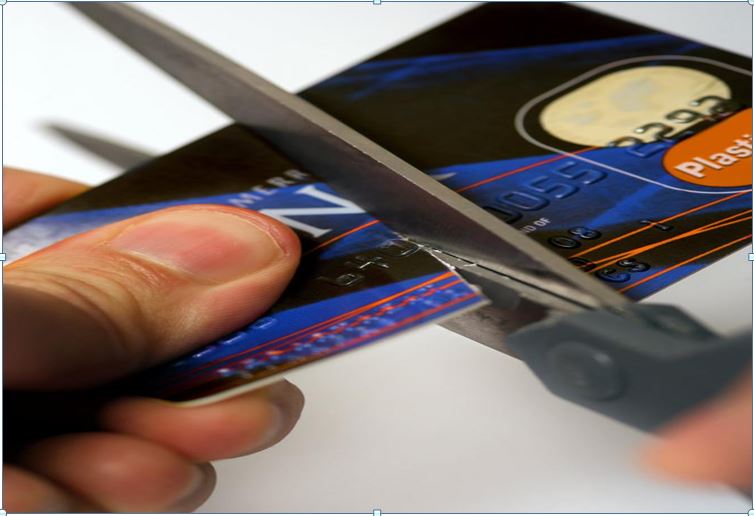
by Ajay oberoi | Consumer Proposal, Credit Counseling, Credit Repair, Debt Management
Budgeting For Holidays – Why it’s Important and How to Do It
Holidays are a great time to relax, retract and rejuvenate. These three R’s play a key role in anyone’s life and keep their sanity alive. That’s why the holiday season is considered as the happiest time of the year all over the world.
People leave no stone unturned while planning for the holidays. What they will do, what they will eat, where they will go, what they will buy and most importantly, what they will do to make these holidays different from last year’s. While all this seems pretty straightforward, it’s not all fun and games. Holidays come with a lot of expenses and no matter how strict you are with your money, you end up spending a little more than you would have liked.
Buying gifts, going for dinners, outings, picnics, and other things, all require you to spend a good amount of money. If you don’t have a plan to monitor your expenses during the holiday season, you will surely regret it later. That’s why budgeting for holidays is important.
Budgeting for holidays will require you to thoroughly assess your financial standing, including your debts if any, and your future expenses. If you are already going through a tough time financially, you should think about tossing the list of gifts out of your window.
Here are some effective steps that will help you in budgeting for holidays and be sticking to that budget.
1. Make a list of all expenses
The first thing you should do is make a list of all your likely expenses in this holiday season. This list will include all the gifts, traveling expenses, wrapping papers, donations, decorations, and holiday cards. You can also add the outings you have planned. This is a crucial first step in budgeting for holidays because it gives you an idea of what things you need to cover.
2. Set a spending limit
At this step, you need to determine how much money you can afford to spend on these holidays, especially Christmas. While budgeting for holidays, it’s important that you consider only the amount that you had as “extra savings” or the amount you had already set aside for Christmas.
3. Allocate money to each category of expenses
Once you know how much you have in hand, you can start dividing and assigning that money to different categories. For example, traveling can be counted as a separate category and the same goes for dining, gifts, and decorations, etc.
4. Make a shopping list
The next step in budgeting for holidays includes making a list of your holiday shopping. You must have some ideas in your mind about what gifts you want to give to specific people. The price range of these gifts should strictly not exceed your budget. Look for gift stores that offer sales.
5. Finally, monitor your spending
It’s time for you to shop according to that list and while you are at it, track your spending. You should carry your budget sheet with you, cross off the things as you buy them, and makes sure you are not exceeding your budget. This will also help you make adjustments if needed. Also, keep an eye on your budget sheet as you go about other expenses throughout the season.
Budgeting for holidays will help you a lot in keeping your finances in control while having the fun that you deserve this holiday season.

by Ajay oberoi | Bankruptcy, Consumer Proposal, Credit Counseling, Credit Repair, Debt Management
5 Tips on Avoiding Fraud with Better Financial Awareness
Every day, countless people around the globe fall victim to fraud. Identity theft, data breaches, online scams, and other financial frauds have unfortunately become quite mainstream. While new and improved technology has made things easier for consumers, it has also opened doors for fraudsters to design new ways to penetrate people’s financial details and rob them.
The fraud prevention authorities keep on working towards building a fraud-proof system, but they still haven’t been able to completely eradicate the scam mafia and frauds. To be fair to them, complete prevention doesn’t seem practically possible considering the growing reliance on money in today’s world.
However, even under these circumstances, better financial awareness and a sense of responsibility can protect people from becoming victims of fraud.
Following are some essential tips to avoid fraud and practice financial awareness:
1. Keep your financial information to yourself.
‘Phishing’ is a very common scam where fraudsters contact you via email or text claiming they are some retailers or government agencies and try to extract financial details from you. No matter what happens, you must not give out your sensitive financial information to anyone or any organization you don’t know. Your bank or a genuine credit card company will never contact you in this manner and ask for your information.
2. Don’t reveal your Social Security number.
One of the most crucial and yet less discussed tips to avoid fraud is this. A lot of people get emails or texts asking for their Social Security number for whatever pretended reasons. Some websites even ask you to enter that information. Don’t do it. These are mostly scams. An effective financial awareness involves the understanding of what information is confidential and what is the right place to use it.
3. Shred your ATM receipts.
One common mistake people do that puts them at risk of fraud is that they don’t shred their ATM receipts. Some people don’t even take the receipt out and some only discard it on the floor at the same ATM. Fraudsters can use these discarded receipts to carry out identity theft or account fraud.
4. Create strong passwords and change them frequently.
“12345” or “fluffy” is not going to do anymore. Today, when people are required to set passwords on a lot of websites and accounts, they usually go for a simple password and use the same everywhere. Cracking a simple password has become a lot easier and even the repeated passwords are easy to extract. Therefore, one important thing that shows financial awareness is keeping strong passwords that include a combination of letters, numbers, and special characters. Try to keep different passwords everywhere and also, change them often. This can be considered as one of the basic tips to avoid fraud.
5. Double-check the authenticity of an online shopping website.
Online shopping has become prevalent. Massive traffic on these websites has allowed scams to take advantage of it. There are a lot of fake shopping websites. Always opt for a reliable and well-established shopping website and before entering your personal information, check if the website is legit. No list of effective tips to avoid fraud can be completed without this point.
Scams will continue to operate and fraud will continue to affect people. But, you can still use your financial awareness to protect yourself. The above-mentioned tips to avoid fraud are surely going to help you.

by admin | Bankruptcy, Consumer Proposal
Creditors Can Garnish Your Wages! Learn More about Wage Garnishment in Canada
What’s worse than not having enough money to pay your debt? That’s right, having your wages cut down. Wage garnishment is basically a legal order that allows creditors to get hold of a certain percentage of debtor’s monthly income until that individual pays back the debt in full.
Wage garnishment in Canada can really have a negative impact on you and your family. A smaller paycheck does not only diminish your motivation but can also pose a risk of even more severe financial crisis for you.
If the court issues an order of wage garnishment to your employer, they will have to comply with the order and withhold a certain amount of your pay. However, first, the creditor has to go through a process before starting to garnish their wages.
How It Works
For wage garnishment in Canada, the creditor will have to acquire a judgment from the court. This judgment recognizes that the creditor does have a case against you. Then, the creditor will need to be granted seizure summons, which will allow them to look for your assets to seize. In case you have no physical assets that can be legally seized, the creditor will serve a seizure notice to your employer and begin garnishing your wages. Your wages will continue to be garnished until your whole debt has been cleared.
Wage garnishment in Canada most commonly occurs among people who do not have any equity or assets worthy of being seized for the recovery of debts.
Rules in Canada
Both federal and provincial laws are present for wage garnishment in Canada that administrate what kind of assets a creditor can seize and what percentage of a paycheck can be garnished. Typically, there are similar laws all over Canada. The only exceptions are New Brunswick and B.C.
Creditors are not at all allowed to garnish wages in New Brunswick, whereas, home appliances and items cannot be seized in B.C.
Some provinces do not allow garnishment of more than 30% of the paycheck.
Also, creditors cannot get a hold of your line of credit as it doesn’t have the actual cash for them to take, but they will be able to seize cash straight from your bank account.
Your Options
If you ever find yourself in this dreadful situation, you have a few options.
- You can negotiate with your creditor to settle on a new payment plan and request them to stop your wage garnishment.
- You can seek the help of the court to get your wage garnishment reduced on the basis of financial hardship.
- You can simply quit your job. No paychecks mean no wage garnishment in Canada.
- You can file a consumer proposal.
- You can file for personal bankruptcy.
The two best options to stop wage garnishment in Canada are filing for bankruptcy or filing a consumer proposal. Although both these options will put a stop to the proceeding with garnishment, they can significantly affect your credit score and your overall financial situation.

by admin | Bankruptcy, Consumer Proposal, Credit Counseling
Love can really do go blind no matter angle you look at it. Though you do all to achieve financial stability, love prevails and eat you. The problem that you are facing is you are marrying your true love with the debts he/ she have. If you do not what to deal with his or her financial debts, both of you must work together to overcome her or his mistakes with finance in the past. Since that marriage is the union of two people that have the love for each other, you can both work with this burden. Nevertheless, that does not mean that you have to give all the wealth that you get when you are single.
If you are marrying in the name of love and her or his debt cannot be avoided, better to read the texts below so you will not find your marriage in a poor state.
- Know your liabilities with the debt of your spouse
Many are mistaken with the joining of assets and liabilities in marriage. It is not true that you will join all your financing and assets in a marriage. In contradiction, the assets and liabilities will only be shared when both of you are legally married. The assets that both of you acquire before the marriage will remain in your name. It will be left untouched even that you are married to her or him.
- Join credit or not
Before you made an account titled joint credit, you have to know the time your assets will be pulled by the debt of your wife or husband. Make sure that your finance in when you’re single will not be part of the joint account. Since you are married, any assets that you acquired during the period of marriage will be a property of both of you.
- Past financial responsibility
Before you say yes in the church or court, make sure that you know the financial part of your partner. Not you will leave him or her with the burden of debt, it called conservative. You just want to be prepared and since you are madly and deeply in love. Death does us part is the only thing that will separate you and not the marriage with debt.
- Wait a little time
Before you imprison yourself in a marriage that deals with the debt of your husband or wife, wait more time to decide. No matter how you love her or him and you are convinced that she or he is the one, it is not good that others see that marriage is the solution to pay a debt.
- Have a legal agreement
If you do not wish to take the burden of debt by your wife or husband but you are really on to marrying her or him, do an agreement. There is a prenuptial agreement that you can have to assure that you will not be responsible for the past debt of your spouse.
Marriage is a sacred joining of many people, and they want that the best person is standing with her at the altar. However, if you really love him and her, you marry in the name of love and debt is not part of it. Take the information above to be your guide.

by Ajay oberoi | Consumer Proposal, Credit Counseling, Debt Management
Sometimes the feeling of losing your credit cards is like losing your car key or kids in a crowded place. When you lose your card or someone really stole, it can have many damages that you will not wish to handle. You are in a grave treat when you have a high limit or have to pay the bank. The last thing that you will wish to think about is your credit card is in the hand of a bad person. It is a serious thing when you lose or someone stole your credits card. Here are the things you should do if ever your credit card is lost or stolen.
If you confirm that your credit card is stolen or lost, the best thing that you should do is to act accordingly to aid your problem. Do not wait for another day to go to the bank and have your credit reported. When you are sure that it is lost or stolen, call the bank or any institution that has the liability with your credit card.
It’s a problem you lose or someone stole your credit card, however, you will have a bigger problem when you found out that there is a transaction after you lose or someone stole your credit card. To avoid this phenomenon, you have to make sure that the bank is protecting you from unauthorized charges. According to the law, you’re protected by unauthorized transactions upon the time that you report the incidence of lost or stolen credit cards.
It is better to act as the best move in these times. If you found out that your credit card is lost or someone stole it, go to the issuer of the credit card and inform them of your problem. Ask the credit card issuer to have your credit card account freeze, this way there will be no transaction approve for your credit card account.
- Apply for a new credit card or account
It is easier than you have your card replace than having your account replace. If you ask for a replacement for the credit card, you can change the password and you can have access to your account. You can get your new card and ask you to replace the default password for your first use.
With the loss or someone stolen your credit card, you do not want to encounter the same situation. Do precaution and know the process that the bank or card issuer imposes when there is an incident of lost or stolen credit card. Know your right protected by the issuer of the credit card. Check at least twice or three times every day that your credit card/s is still in your possession.
It is very unfortunate to have your credit card lost or stolen. Your whole world can go trembling with the idea; however, if it happens you know what to do. The best and the right thing to do is act fast, go to the issuer of the credit card, and report the incident.

by Ajay oberoi | Bankruptcy, Consumer Proposal, Credit Counseling, Credit Repair, Debt Management
Credit Card use has been widely accepted as the most efficient way of handling your urgent or emergency mobile purchase needs. Having a credit card gives you access to purchasing powers or any financial aid for any method requiring trading options. Having access to this kind of trading method gives the option of traveling without you needing to bring along huge loads of money. This method gives you the needed protection that you would prefer to have for your finances enables you to carry on with your day to day tasks without any added worry of where to store your cash or from any threat of your money being stolen. When in use of a credit card, you will have the advantage of using its perk, but it does not stay forever, for it comes with a limit.
What Determines the Limit of your Credit Card?
When your credit card limit is being considered, the bank bases it off the customer’s debt in relation to the customer’s known financial resources at any level. A customer’s credit profile is reviewed as a factor in determining your limit for they comprise of the client’s payment history, related income, and the method of use. Setting the client’s credit limit is not that permanent, for they can vary depending on the use and payment habits of the client, decreasing or increasing it in the process.
What connotes an increase in credit card limit, it might be related to the fact that your credit has improved and is now eligible for more borrows and in some cases the bank would contact you and inform you that you have made the necessary adjustments to qualify and ask you how you want to increase your credit limit funds. Your debt to credit ration might benefit from your unchanged spending habits providing a way for you to have an easy fall back in case of emergency situations. You would also be able to ask for an increase in the limit provided that you have a curated history of on-time bills payment. If you have had a positive impact on credit use then your company would notify you that they have increased your limit for your great participation.
How could your limit decrease? If you have been doing the opposite of what entails you to an increase in the limit, like not falling behind in the payment of your bills and constantly abusing the use of your card even though you have already reached the limit multiple times, then that would net you the credit card limit decrease. It is important for you to track your own credit limit and be able to review your credit card use as well as be able to communicate effectively with your credit card company.
With all these in mind, wanting a higher credit limit is now a very easy task to accomplish. It is important to understand your credit card options and manage your credit card spending habits to be able to build a positive credit score helping you out in the future.









